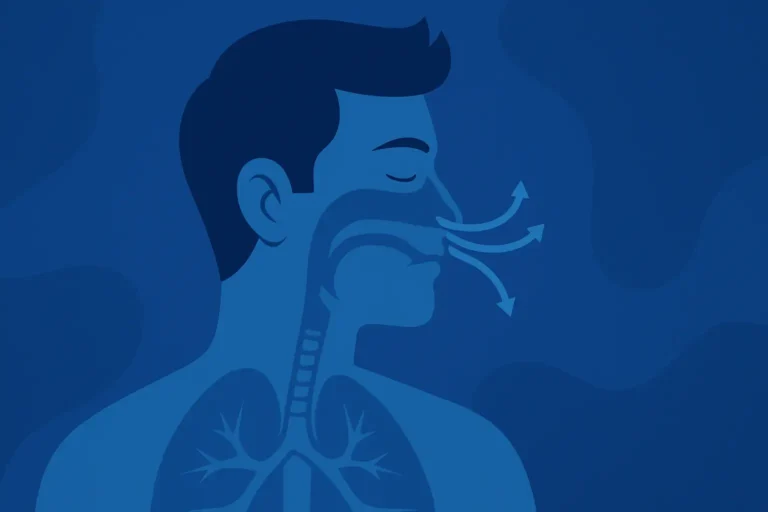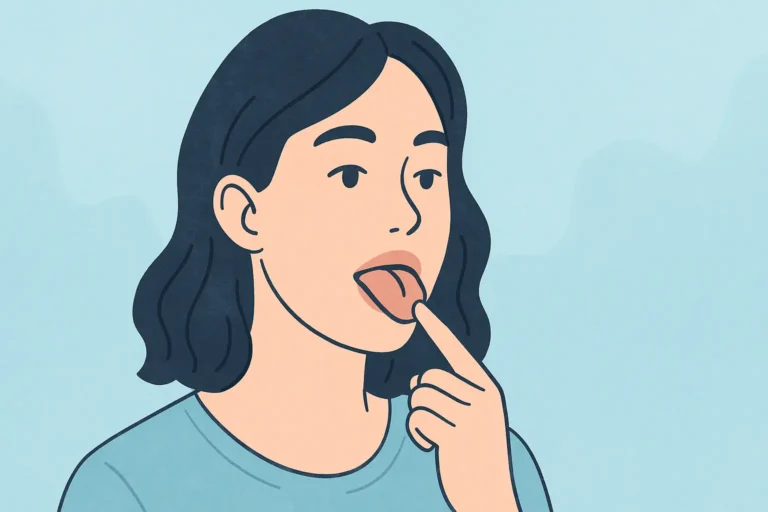Dry Mouth vs Xerostomia: What’s the Difference?
There’s no real difference—“dry mouth” and “xerostomia” mean the same thing. The only difference is that “xerostomia” is the medical term doctors use, while “dry mouth” is the everyday way most people say it.
But there’s more you should know about how it affects your health, what causes it, and what you can do to treat it.
So Why Do Doctors Say Xerostomia?
“Xerostomia” sounds fancy, but it just comes from Greek roots: “xero” means dry, and “stoma” means mouth. That’s it.
Doctors use the term when writing medical records or doing research. It helps keep things accurate.
But when you go to the dentist and say, “My mouth feels really dry all the time,” they know exactly what you’re talking about. No need to say the big word.
Is There Ever a Difference Between the Two?
Sometimes people use “dry mouth” to mean the feeling, and “xerostomia” to mean the condition. That’s the only minor difference.
For example, your mouth might feel dry after drinking alcohol or sleeping with your mouth open. That’s temporary.
But if it keeps happening every day and it affects your health, it might be diagnosed as xerostomia. In other words, it’s now a condition, not just a passing feeling.
Still, in most conversations—online or in real life—they’re used the same way.
What Does Dry Mouth Actually Feel Like?
If you’ve ever had a super dry tongue in the morning or felt like your mouth is full of cotton, you know the feeling.
Other signs include:
- A sticky or dry feeling in your mouth
- Trouble swallowing or speaking
- Bad breath that won’t go away
- Cracks in your lips or corners of your mouth
- Your tongue feels dry and rough
Some people even say food tastes different when they have dry mouth.
What Causes Dry Mouth (or Xerostomia)?
There are a lot of things that can dry out your mouth, and some are more serious than others.
Here are the most common reasons:
1. Medications
A ton of common meds list “dry mouth” as a side effect—especially allergy pills, antidepressants, and blood pressure medications.
If you’ve recently started a new medicine and your mouth feels dry, that could be the reason.
2. Dehydration
Not drinking enough water is a big one. Even mild dehydration can lead to a dry mouth.
Caffeine, alcohol, and salty snacks can also make it worse.
3. Mouth Breathing
If you snore or sleep with your mouth open, your mouth will dry out fast. Same goes for people who wear CPAP machines or oxygen masks.
4. Medical Conditions
Dry mouth is common in people with diabetes, Parkinson’s, and Sjogren’s syndrome. It can also show up after radiation treatment for cancer.
If your dry mouth keeps coming back or lasts for weeks, it’s a good idea to talk to your doctor or dentist.
Why Is Dry Mouth a Problem?
It’s not just annoying—it can actually cause bigger issues if it sticks around too long.
Your saliva isn’t just there for comfort. It protects your teeth, helps you swallow food, and keeps bacteria in check.
If your mouth is too dry:
- You’re more likely to get cavities
- You might have constant bad breath
- It’s harder to chew and swallow
- You could get mouth sores or infections
So even though “dry mouth” sounds harmless, it can really mess with your health if ignored.
What Can You Do About It?
Luckily, there are things you can try right away that really help.
1. Stay Hydrated
Drink small sips of water throughout the day. Don’t wait until you feel thirsty. That’s already a sign you’re dehydrated.
Try to avoid too much caffeine, alcohol, or salty snacks, which can make things worse.
2. Try Sugar-Free Gum or Lozenges
Chewing gum or sucking on sugar-free mints can help get your saliva flowing. Just make sure they don’t have sugar, or you’ll risk cavities.
Look for products that have xylitol—it’s a natural sweetener that’s actually good for your teeth.
3. Use a Humidifier
Dry air in your bedroom can make things worse, especially at night. A humidifier helps keep moisture in the air and your mouth.
This helps if you sleep with your mouth open or use a CPAP machine.
4. Avoid Mouthwashes With Alcohol
A lot of mouthwashes dry out your mouth because they contain alcohol. Switch to an alcohol-free rinse that’s made for dry mouth.
Some brands say “moisturizing” or “for dry mouth” right on the label.
5. Try Over-the-Counter Sprays or Gels
You can find saliva substitutes at most pharmacies. They won’t fix the cause, but they can give relief when your mouth feels like sandpaper.
These sprays, gels, or rinses are usually safe to use multiple times a day.
When to See a Doctor or Dentist
If you’ve tried home remedies for a couple of weeks and nothing changes, or if your dry mouth is getting worse, it’s time to see a professional.
Here’s when to take it seriously:
- You keep getting cavities even with brushing
- You wake up with a dry mouth every morning
- You’re having trouble chewing or swallowing
- Your tongue looks cracked or feels like sandpaper
A dentist can check for signs of damage or decay, and your doctor can look into any medications or health issues that could be behind it.
Can Dry Mouth Be Cured?
It depends on the cause.
If a certain medication is drying out your mouth, your doctor might adjust the dose or switch it. If it’s dehydration or diet, you can fix that pretty easily.
But if it’s linked to a chronic condition like diabetes or Sjogren’s syndrome, you might need ongoing treatment to manage it.
The key is not to ignore it. Even if it’s not serious right now, it can turn into something worse if you let it go.
A Quick Recap: Dry Mouth vs Xerostomia
Let’s sum it up in plain terms:
| Term | What It Means | Who Uses It |
|---|---|---|
| Dry Mouth | Everyday word for when your mouth feels dry | Regular people |
| Xerostomia | Medical term for dry mouth, especially as a condition | Doctors, dentists, researchers |
They mean the same thing, but one sounds like something your dentist says and the other sounds like something your grandma might say.
Final Thoughts
So, dry mouth and xerostomia are really just two names for the same issue. One’s medical, one’s casual. But no matter what you call it, it can affect your health, comfort, and even how you enjoy food.
Don’t just live with it. Try small changes at home, and if it doesn’t get better, ask your doctor or dentist for help.
You don’t have to suffer through it in silence—or keep waking up with your mouth feeling like the desert.







